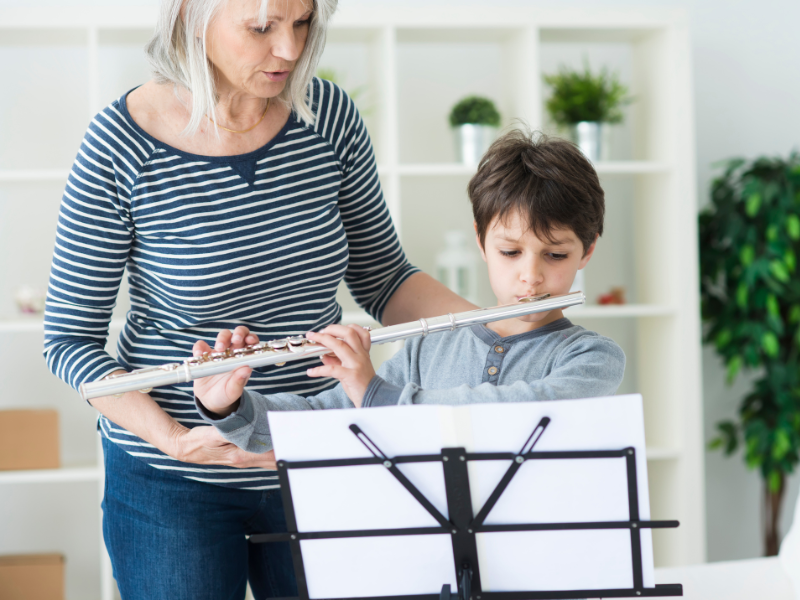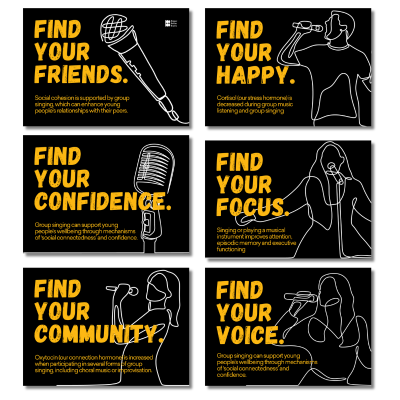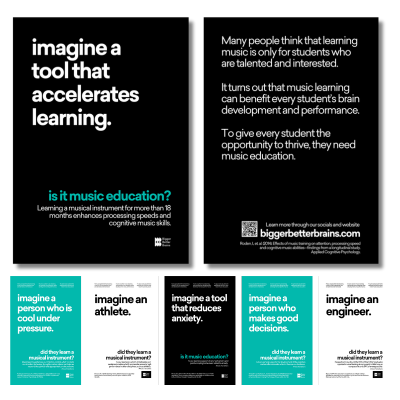
Research Updates

Here at Bigger Better Brains we believe that through educating yourself, you can then educate and affect positive change in your community.
With all of the research in the field of neuromusical science, our BBB Research section serves as a content hub for you. We regularly share findings and break down the latest research to educate and inspire discussion. We hope you enjoy this page on our website and share BBB news with your colleagues, parents and students.
Boost your child's reading skills in just 10 minutes a week
10 minutes of music learning a week for 10 weeks can improve reading skills for poor readers.
Rhythm and Reading
This brand new study with beginner readers (aged 5-7) found a whole swag of connections, concluding that “rhythm skills and literacy call on overlapping neural mechanisms, supporting the idea that rhythm training may boost literacy in part by engaging sensory‐motor systems”.
Is there a new way to think about language (and music) development?
The capacity for language is distinctly human. It allows us to communicate, learn things, create culture, and think better. Because of its complexity, scientists have long struggled to understand the neurobiology of language.
Can second language ability be predicted through music?
While musicality and working memory are mostly treated as clear predictors of foreign language learning ability, the relationship between brain morphology and language aptitude is far from obvious.
Rhythm is a multidimensional skill set
To keep a beat, our brains have to get the auditory and motor cortices to first synchronise and then maintain that synchronisation as small things change in the music. To maintain a rhythm, our brains need to do all of that plus constantly monitor how the rhythm is fitting into the beat. It looks easy, however, it is very hard.
Music learning can change the educational life for disadvantaged students
Music has been used as an intervention around the world to help students, and inevitably whole communities, who are living in challenging circumstances.
Little ears are listening: How babies learn to talk before they’re even born
This article is packed with fantastic research from the MARCS Institute in Sydney, Australia. It is vital to study the first developmental steps in all areas of life.
Hospitals are prescribing music therapy for babies
“Research suggests music helps parents bond with babies who have had a harrowing start to life and may benefit the babies’ health and brain development.”
Music learning increases pre-reading skills and vocabulary
The results of this study found that early childhood music training can lead to associated improvements in both musical skills and language skills!
Language is music to a baby’s brain
In this study, they found that 9-month-old babies who had one month of exposure to directed music listening improved not only their auditory processing of music but also their language!
Singing – the [new] pain management for premature babies
“The primary musical features of infant-directed singing are ideal for emotional coordination and sharing between parent and infant without the risk of over-stimulation.”
Musical play is a must for preschoolers
What is musical play? Is it bashing on an upturned drum in the playground or banging pots and pans on the kitchen floor? Well, it can be both.













![Singing – the [new] pain management for premature babies](https://images.squarespace-cdn.com/content/v1/64c31ad8c54df33979a8ebe4/c3eca797-6d6a-4d52-a6a8-3087eab8c824/Mum+and+baby.png)







